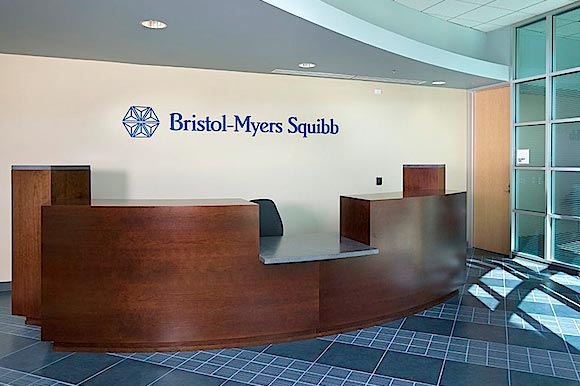During the middle of last month, junior biotech Five Prime Therapeutics, Inc. (NASDAQ:FPRX) reported it had inked a deal with industry behemoth Bristol-Myers Squibb Company (NYSE:BMY); a deal that will see the latter foot the bill for the development and commercialization of Five Prime’s lead candidate FPA008. The announcement injected some immediate upside strength into Five Prime, and further strength came at the end of last week, when the company announced it had received HSR clearance for the collaboration. Five Prime is up close to 90% on the agreement, suggesting the BMS deal adds real value to its development efforts – $350 million upfront value to be exact, with further milestones in excess of $1 billion. The question is, what does BMS get for its money? $350 million up front seems a lot to pay for development rights, when pre announcement Five Prime only had a market cap of circa $450 million. The company must see promise in FPA008, so let’s try and figure out why.
In our bodies we have something called the colony stimulating factor 1 receptor (CSF1R), which is a protein found on the surface of cells. Its main roll is to bind to a cytokine called CS1, which then signals to the immune system promoting the production of, and controlling to a certain extent, macrophages. FPA008 is a CSF1R inhibitor. It blocks the receptor from binding with the CS1 cytokine, and in turn, halts the production of macrophages. But macrophages are good, why would we want to inhibit their production? Well, this is where Five Prime’s two lead indications come in to the picture. The first is a rheumatoid arthritis indication. Some macrophages are responsible for inflammation – one of the primary causes behind RA. Through inhibition of the CSF1R receptor, Five Prime believes it can reduce inflammation and, in turn, treat RA. The second indication is oncology. When a patient has a tumor, it creates what are called tumor-associated macrophages. The number of these types of macrophages generally correlates with the severity of the cancer in question – primarily because they suppress the immune response to the tumor cells. Again, through CSF1R inhibition, Five Prime believes it can reduce the number of tumor-associated macrophages, and in turn, the severity of the cancer. BMS was already actively involved with Five Prime in its cancer indications, on the back of a deal agreed in November last year that saw the initiation of a phase Ia/Ib trial combining FPA008 and BMS’s Opdivo, across a range of cancers, including lung cancer, melanoma and pancreatic cancer, among others. As a quick side note, the latest agreement will cover the continuation of these trials to maturity, with BMS bearing any ongoing costs.
So have we got any evidence of efficacy for FPA008? Well, the oncology trial is not scheduled to complete until late 2019, so from an oncology perspective, we’ve only got preclinical to go on. All this offered us was proof of concept. For RA, however, we’ve got something we can use. Just last week the company announced prelim data from its ongoing RA phase I at the American College of Rheumatology’s annual meeting. The trial is an open label dose escalating study, wit ha primary endpoint of safety and tolerability. As such, efficacy is not really the focus at this stage, but we can use the results to gain some insight nonetheless. First, across the issued dose, CSF1R inhibition induced by FPA008 translated to an increased level of CSF1 in serum. Basically, this shows that the drug is actively inhibiting CSF1R, as it is stopping the CSF1 from binding to the receptor, as illustrated by the higher concentration of the cytokine in serum. Second, FPA008 causes a dose dependent reduction of an inflammatory monocyte called CD16+, which is one of the monocytes associated with inflammation in RA. From a safety perspective, as yet things look promising. Low grade adverse events that fall in line with what’s expected from CSF1R inhibition (namely, eyelid edema) are the only real noteworthy negatives, and these should far from inhibit the trials continuation.
To answer the initial question then, regarding the value of the deal to BMS, we believe there is promise in Five Prime’s pipeline, but it will be a slow burner. The real value lies in the oncology indications, the trials for which wont complete for another 4 years (primary completion March 2018, study completion August 2019). The RA indication does have value, and if the two companies can push through a phase II that demonstrates efficacy we could see some strength, but BMS’s ROI will come if it can prove FPA008 enhances Opdivo.
